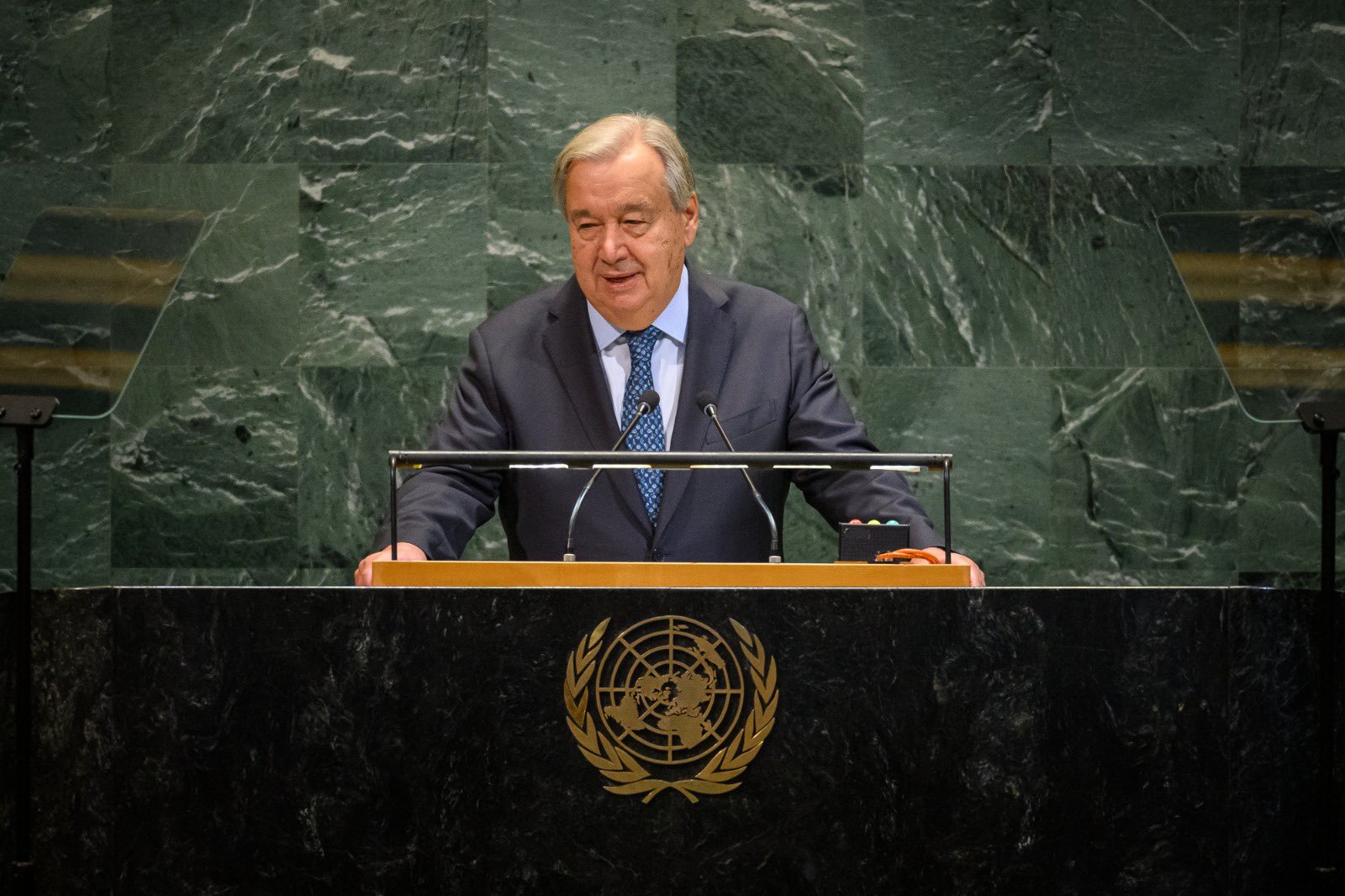UN Chief Warns of Global Collapse as Trump, Guterres Clash Over Peace, Power, and the Future of Multilateralism
As the 80th United Nations General Assembly opened in New York, Secretary-General António Guterres delivered a warning to world leaders: global peace and progress are under siege, and the world is teetering between cooperation and collapse.
In his annual address, Guterres urged nations to choose law over lawlessness and solidarity over self-interest, declaring that the “pillars of peace and progress are buckling under the weight of impunity, inequality, and indifference.”
 |
| Secretary-General António Guterres |
Against this backdrop of rising wars, deepening poverty, and intensifying climate disasters, Guterres issued one of his sharpest criticisms yet of the humanitarian catastrophe in Gaza.
Without naming Israel directly, he described the devastation there as the worst he has witnessed in nearly nine years at the helm of the UN, stating bluntly that “nothing can justify the collective punishment of the Palestinian people.”
He called for immediate implementation of the International Court of Justice’s provisional measures in the South Africa-led genocide case against Israel — a move that places legal pressure on a major UN member without formal indictment.
Guterres also took aim at those funding and enabling the war in Sudan, calling for an end to support for the warring parties. But his warnings went beyond conflicts: he condemned aid cuts by countries, including the United States, as “a death sentence for many,” citing the UN’s deepening financial crisis as a growing threat to the institution’s relevance and reach.
U.S. President Donald Trump, returning to the Assembly after a five-year gap, offered a starkly different tone. In a speech heavy with nationalist bravado, Trump dismissed the UN as a forum of “empty words,” mocked its infrastructure, and warned that “your countries are going to hell” due to what he called the “uncontrolled migration crisis.”
The juxtaposition was glaring: as Guterres pleaded for multilateralism to be salvaged, Trump used the platform to double down on “America First,” defend his military strikes and immigration crackdowns, and ridicule green energy and global climate cooperation.
Despite calling the UN’s peace potential “tremendous,” Trump reserved praise for leaders like Argentina’s Javier Milei and criticized European allies for recognizing a Palestinian state — equating it to rewarding Hamas for past attacks.
Brazilian President Luiz Inácio Lula da Silva, speaking first in keeping with UN tradition, echoed Guterres’ concerns, warning that global order is increasingly defined by “power play” rather than principle.
Turkish President Recep Tayyip Erdoğan condemned Israel’s actions and stood in for Palestinian Authority President Mahmoud Abbas, whose U.S. visa was revoked.
The divide between collective diplomacy and unilateral assertion ran through the first day of the General Debate. While the week’s theme is “Better Together,” the speeches revealed a world splintering under the weight of conflict, climate, and confrontation — and an institution caught between purpose and paralysis.
